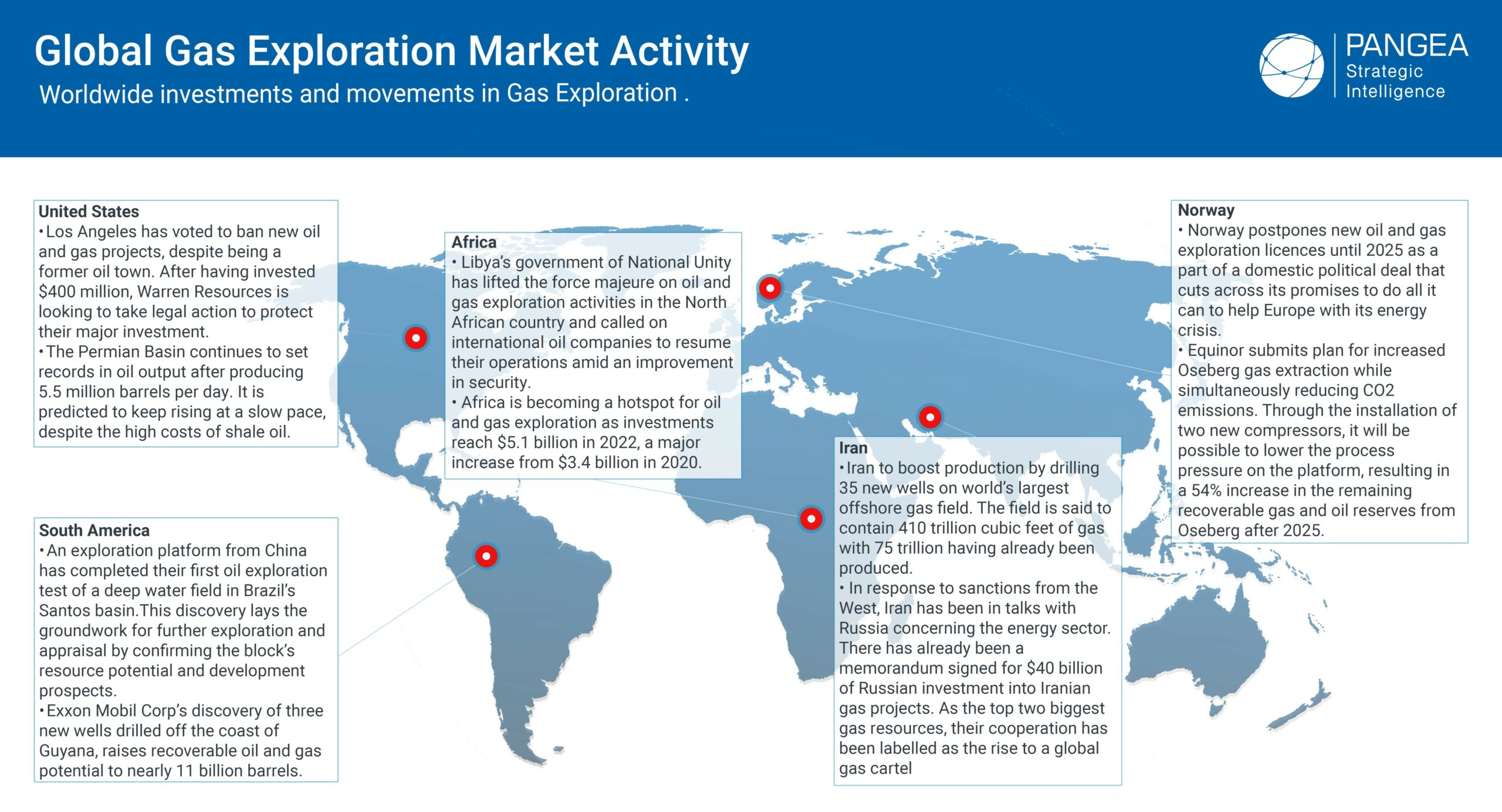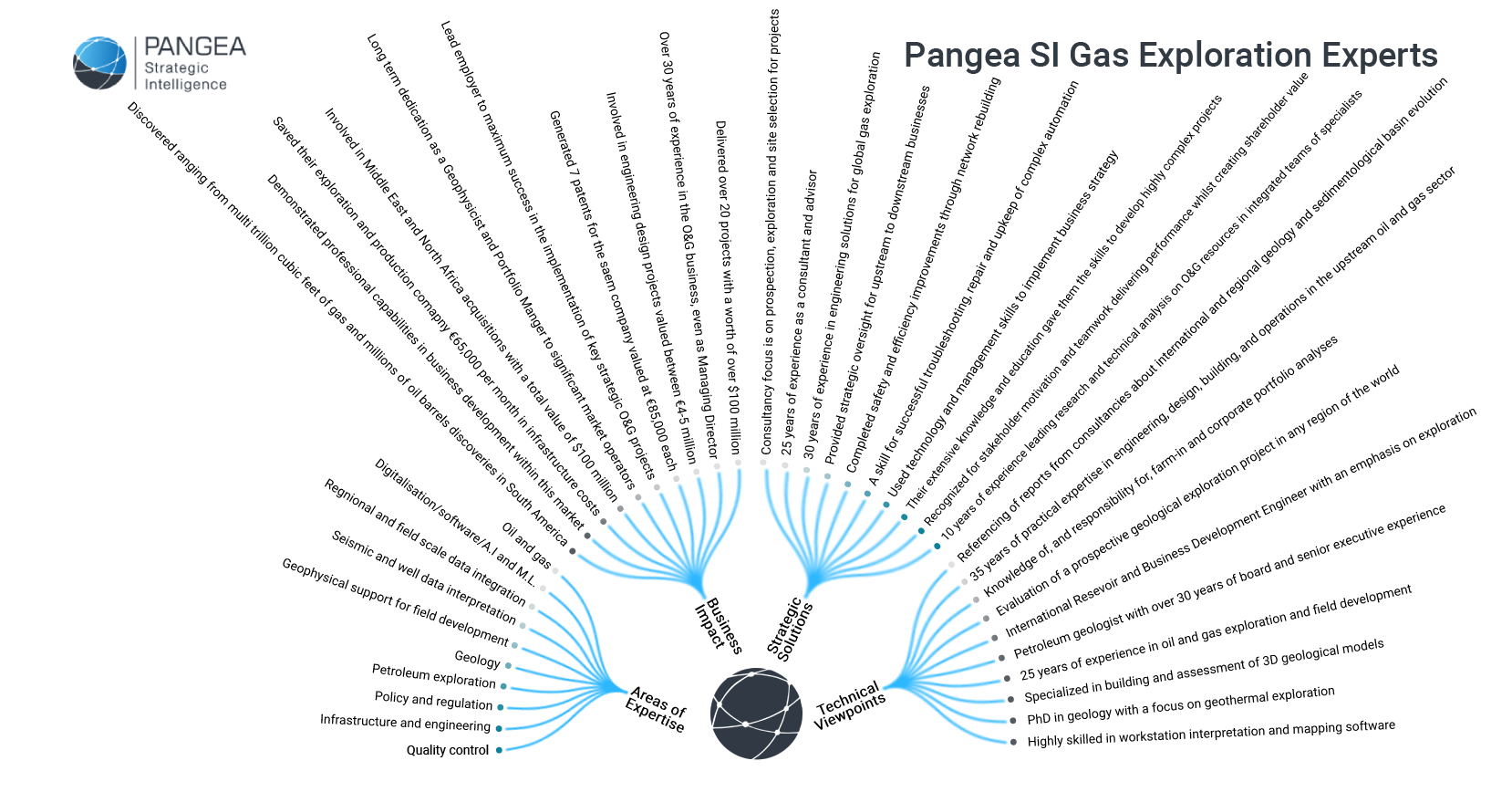Exploration is high-risk and expensive, involving primarily corporate funds.5 The cost of unsuccessful exploration, such as one that consisted of seismic studies and drilling a dry well, can cost $5 million to $20 million per exploration site, and in some cases, much more. However, when an exploration site is successful and oil and gas extraction is productive, exploration costs are recovered and significantly less compared to other production costs.
The process of extracting oil and gas and production, it can typically consist of three stages/phases.
During the first stage of exploration, companies must first start with finding hydrocarbons, which are the main components of petroleum and natural gas. In order to locate these hydrocarbons, you must produce land surveys and identify the places that are going to be most promising when drilling. The ultimate goal is to locate specific materials, so they can be estimated to find the amount of oil & gas before drilling. Once there appears to reserve below the ground, test drilling can begin.
The next stage of gas exploration is to build the well. Once you have identified from the search and exploration phase that there is indeed enough reserves to be commercially viable for sale. This process involves making a hole in the ground and drilling down below the rock, you then insert a steel pipe in the hole which allows for exploration at a deeper level. Samples are taken and experts assess the quality and quantity needed to produce and sell commercially. If this has been approved the platform can be built, which can be onshore or offshore.
Now that the platform has been built and the well has been dug, the oil and gas deposit extraction can start. The petroleum (and sometimes natural gas) is taken from the ground, stored for a short amount of time, and transported via various means (usually via a pipeline) to a refinery. Once that the oil reserves have been depleted, it’s time to abandon the well, they are plugged or sealed and attempts are made to restore the area in a effort to help the environment.
With the world’s high costs, increasing global demands and with ever-growing environmental regulations, the challenges that the global oil & gas industry is facing are now tougher than ever. The three main challenges are reducing the cost, optimising performance and improving environmental footprint.
Producing crude oil and refined products at lower costs in a bid to stay competitive is one of the industry’s major challenges. It is somewhat a priority for the oil industry to optimise their production systems and environmental systems, resulting in maximised production efficiency. This in turn will reduce the cost of the extraction and refining, which ultimately reduces the cost both for the business and the end consumer.
Crude oil and natural gas are both finite materials, which means companies must find ways of extending the life of extraction sites. To maximise these sites to last as long as possible, they must aim for almost 100% reliability of their plants, reducing unplanned shutdowns, increasing their output and securing industrial assets.
With net zero becoming ever closer, companies must act fast on their environmental impact. The oil & gas industry is also a major consumer of water and energy resources, it brings increasingly stringent environmental standards. This makes them rethink their approaches towards extraction, production, and distribution methods in order to obtain and keep their licence to operate.
The International Energy Agency has published a report that outlines a scenario for a net zero world by 2050. For this to happen, it would ultimately result at the end of fossil fuels such as coal, oil and natural gas. This would have profound effects on the exploration industries.
A product descendant of oil and gas exploration is carbon dioxide, one of the main contributors to global warming, so the energy transition looms ever larger for explorers. These are uniquely challenging times for oil and gas exploration companies, as the barrels with the lowest carbon emissions will be the ones that make it through the short-term market.
Companies within the oil and gas exploration, acknowledge that countries have committed to achieving net-zero emissions and have now started to put plans in place to account for this change.
| Saudi Arabian Oil Co. With a revenue of $ 1.3 trillion, Saudi Aramco is the largest global oil company by revenue. They boast the second-largest crude oil reserves and have extensive refining operations in Saudi Arabia and the US, China, Japan, India and South Korea. |
PetroChina Co. Ltd.s PetroChina is the exchange listed state-owned China National Petroleum Corperation. They currently hold 2nd spot in the revenue generated at $ 367 billion. They are involved with the exploration, development, production and sale of oil and gas. |
| Exxon Mobil Corp. Exxon Mobil explores, produces, trades, transports, and sells oil. They are mainly involved with petroleum and petrochemicals, selling products like fuel, lubricants, and other petroleum chemicals. Exxon Mobil has a revenue of around $ 280.4 billion. |
Total Energies SE Headquartered in France, Total explores and produces crude oil, and natural gas and they refine petrochemical products. They have a revenue of around $ 184.6 billion and this mainly comes from the company’s ownership of petrol stations across Europe, the US and Africa. |
| BP PLC BP is a British oil company that is involved with the exploration, production and supply of petrochemicals. BP is also known for several gas stations around the world and they all help towards the revenue of $ 157.7 billion. |


Clients notify us that they need leading insight for their project.
We engage and vet subject matter Experts matched to the request at speed.
Clients consult with their shortlisted Expert(s) and obtain forward knowledge to incorporate into their strategic plans.
Clients benefit from more refined analysis and practical guidance to achieve a quantifiable business impact.